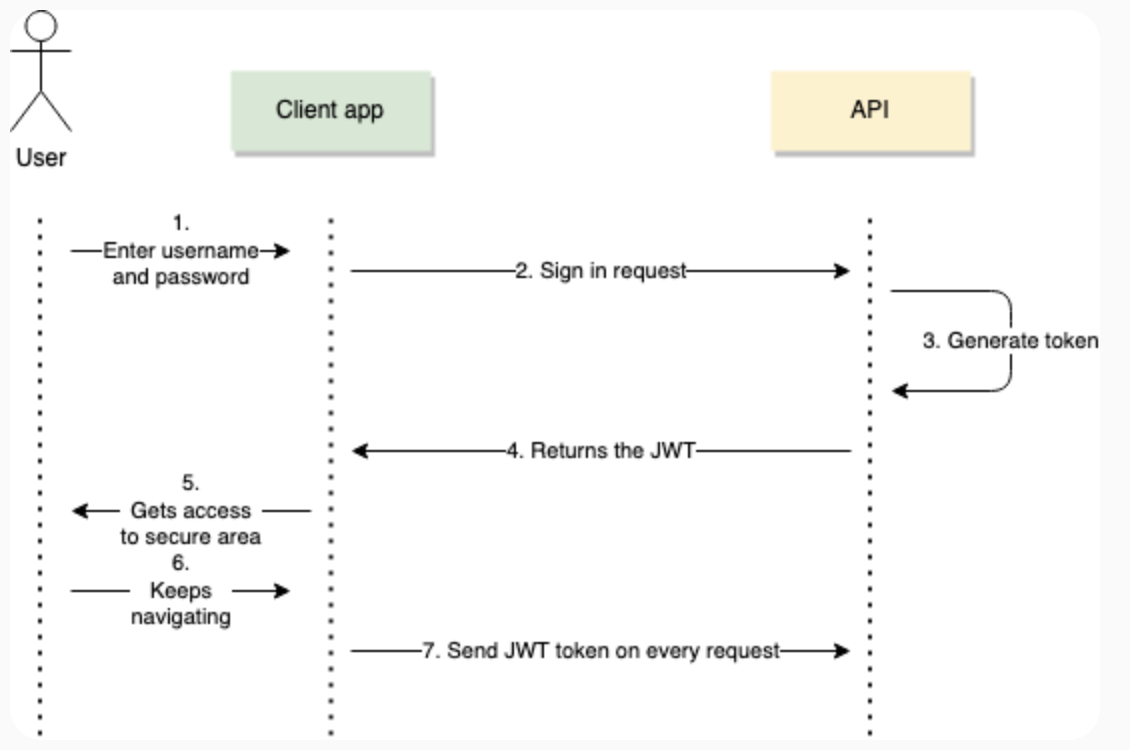CSC/ECE 517 Fall 2024 - E2487. Reimplement authorization helper.rb
Introduction
Expertiza currently uses session-based authentication in its AuthorizationHelper module. However, the new back-end reimplementation adopts JSON Web Token (JWT) for authentication. This transition is necessary to make the system more scalable, stateless, and secure. JWT-based authentication will replace session-based methods, requiring updates to the AuthorizationHelper module and associated methods.
Background
The AuthorizationHelper module in Expertiza plays a critical role in managing user permissions and access control within the system. It provides methods to verify a user’s privileges based on their assigned roles, such as Super-Admin, Admin, Instructor, TA, or Student. These methods check if the user is authorized to perform actions like submitting assignments, reviewing work, or participating in quizzes. Additionally, it determines whether a user is involved in specific assignments, either as a participant, instructor, or through TA mappings.
Problem Statement
Expertiza currently uses session-based authentication in its [AuthorizationHelper] module. The [reimplementation-back-end] however, uses JWT (JSON Web Token) based authentication. This requires a redesign of the AuthorizationHelper module to accommodate JWT-based authentication.
The following points need to be taken care of as per the requirement
- JWT Creation :
- Enable the system to process, verify, and decode JWT tokens.
- Use token data to authenticate users and authorize their actions.
- Token expiry and revocation :
- Implement token expiry mechanisms to ensure tokens have limited lifetimes.
- Add a strategy to handle token revocation, such as maintaining a revocation list.
- Privilege Verification :
- Update methods to validate user privileges using JWT claims.
- Testing and Documentation :
- Write comprehensive unit tests for all JWT-related methods.
- Include clear documentation and comments to aid future developers.
Proposed Changes
JWT Token Overview
A JSON Web Token (JWT) is a compact, URL-safe token format commonly used for securely transmitting information between parties. It is widely used in web applications for authentication and authorization, as it allows information to be verified and trusted. In the context of our reimplemented AuthorizationHelper module, JWT tokens will replace session-based authentication, enabling stateless and more secure access control.
Structure of a JWT A JWT consists of three main parts:
- Header: Contains metadata about the token, such as the type (JWT) and the hashing algorithm used (e.g., HS256 or RS256).
- Payload: Includes claims, which are statements about an entity (typically, the user) and additional data like the user’s role and permissions.
- Signature: A cryptographic signature generated by encoding the header and payload with a secret key or private key, ensuring data integrity.
These three sections are separated by dots (.), forming a token that looks like this: <Header>.<Payload>.<Signature>

Methods to implement
- jwt_verify_and_decode(token): This method will verify and decode a JWT token and return the user's information, including role and claims. Successful verification of the token signature with the secret key will be followed by extraction of the payload which will contain important information about the user and their role for authentication and authorization.
- check_user_privileges(user_info, required_privilege): extract the user's roles or permissions from user_info (e.g., from the decoded JWT payload). Then, check if required_privilege exists within the user's permissions, returning true if it does and false otherwise to control access accordingly.
Existing Methods to update
- current_user_is_a?(role_name):
def current_user_is_a?(role_name)
current_user_and_role_exist? && session[:user].role.name == role_name
end
Currently this method relies on the session variable which is populated at the time of login to determine the role of a user. This would have to be updated to decode the user's role from the JWT payload
- user_logged_in?:
def user_logged_in?
!session[:user].nil?
end
This method will have to be updated to check the user's login status based on JWT validity
- current_user_has_privileges_of?(role_name)
def current_user_has_privileges_of?(role_name)
current_user_and_role_exist? && session[:user].role.has_all_privileges_of?(Role.find_by(name: role_name))
end
Needs to remove dependency on session variable and get user information from the JWT's decoded payload
- current_user_and_role_exist?
def current_user_and_role_exist?
user_logged_in? && !session[:user].role.nil?
end
Similarly, the role here needs to be checked from the JWT payload Similarly methods like current_user_has_id?(id) will also have to be updated to remove dependencies from the session object, which are all part of the [AuthorizationHelper] module
Anticipated Outcomes
1. Enhanced AuthorizationHelper Module with JWT Integration:
Updated and operational AuthorizationHelper module that would use JWT-based authentication. The module would be restructured to incorporate token-based authentication checks, replacing prior session-based methods.
2. Updated Associated Methods:
Methods within the module will have to be updated to leverage JWT claims, ensuring authentication and authorization are handled based on token data. This will allow the module to verify user roles and permissions effectively through JWT claims.
3. Comprehensive JWT Error Handling:
Built-in error handling to manage potential JWT-related issues, such as token expiration, tampering, or invalid claims. This ensures that unauthorized access is
blocked, and clear error messages are provided when issues arise.
4. Robust Unit Tests for Validation:
A full suite of unit tests covering various scenarios, including normal, boundary, and edge cases, to validate each method’s functionality and confirm that all
JWT-based authentication flows work reliably.
5. Detailed Documentation and Code Comments:
In-depth documentation and comments would be added to each function, explaining purpose, usage, and JWT-related adjustments, aiding in code readability and future
maintenance.
Test Plan
- Unit Tests:
- Test valid JWT decoding.
- Verify behavior with invalid or expired tokens.
- Check privilege verification for various roles.
- Integration Tests:
- Simulate API requests with valid and invalid JWT tokens.
- Test behavior of endpoints using the updated AuthorizationHelper methods.
- Edge Cases:
- Tokens with missing claims.
- Users with conflicting roles or privileges.
Team
Mentor
- Kashika Mallick (kmallick@ncsu.edu)
Members
- Shafa Hassan (shassa22@ncsu.edu)
- Archit Gupta (agupta85@ncsu.edu)
- Ansh Ganatra (aganatr@ncsu.edu)